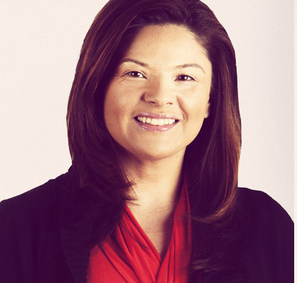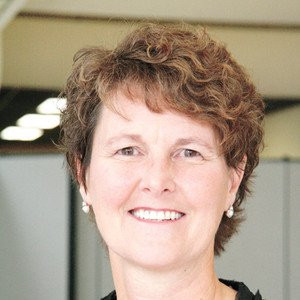It’s All About Education: Chronic Absenteeism’s Effect on Learning
Wednesday, October 01, 2014
Last week, I had the privilege of talking with a Rhode Island public school teacher; she told me that, in her opinion, one of the biggest challenges in our schools today is absenteeism. She told me that she routinely sees students who miss 30 or more days in a school year! Chronic absence, defined as students who have missed ten percent or more of the school year, can dramatically affect learning – not just for that absent student, who misses instruction time and often has gaps in his or her learning, but also for other students, since teachers may have to backtrack or spend additional time reviewing concepts and skills. Frequent absences are correlated with low academic achievement and high dropout rates.
Interestingly, Rhode Island is one of only six states that actually measure chronic absence. In all six of these states, low-income students are the most likely to be chronically absent, regardless of their gender or ethnic background. According to a report released in May 2012 by Johns Hopkins University, students miss school for reasons that fall into the following three categories: students who cannot attend due to illness, family responsibilities, housing instability, etc.; students who will not attend to avoid bullying, unsafe conditions, or embarrassment/harassment; and students who do not attend because they or their parents see no value in being there or they have something else they’d rather do.
Because most chronically absent students are low-income, the problem tends to be concentrated in urban areas; in RI, the four areas where chronic absenteeism is the most significant are Central Falls, Middletown, Providence, and Woonsocket. This is true for both elementary school students and older students; the chart below shows the percentage of students missing more than 10% of the school year:
GET THE LATEST BREAKING NEWS HERE -- SIGN UP FOR GOLOCAL FREE DAILY EBLAST
By comparison, Barrington has a chronic absenteeism rate of 2 – 6%, and East Greenwich’s ranges from 4 – 10%. However, there are other districts whose numbers fall somewhere in the middle; for high school students, 18 of Rhode Island’s 34 districts - more than half - have a chronic absence rate of 15% or higher. Worst of all, these numbers may not include children who have un-enrolled in one school district (due to a move, for example) but have not yet reenrolled in another school district. You can view the full list of all chronic absence rates in RI in the 2013 KidsCount Factbook. Overall, 18% of RI’s 142,000 students (25,560 students) miss at least 18 days of school every year.
What are the implications of chronic absenteeism? First, students with high rates of absence are at risk of academic failure, dropping out of school, and engaging in risky behaviors. Second, if a large percentage of students are not in school to receive instruction, how can we measure their performance (or that of their teachers) on standardized achievement tests? The validity of those test scores must be called into question. This means that school rankings based upon student performance on NECAPs, for example, should be taken with a grain of salt: a school can have the best teachers in the state, but if the students aren’t there to learn, they will not demonstrate proficiency in the subjects they have missed.
This leads back to the question of social promotion, the practice of passing a student along to the next grade level regardless of his or her achievement. Should a student who has missed more than 20 days of school be promoted to the next grade? What about a student who has missed more than 40 days of school? Rhode Island does not have a statewide policy on chronic absences; many district policies simply state that multiple absences may result in a referral to a truancy officer or to family court. Providence’s attendance policy states that a student who misses 20 or more days of school “shall be denied course or grade level credit unless s/he is able to demonstrate course or grade level proficiency consistent with the Providence Scope and Sequence framework document.” It goes on to state that, since the Providence School Board believes that the district must provide ongoing support and intervention to prevent failure, the student “shall be provided with multiple options and opportunities to demonstrate proficiency.” According to the teacher I spoke with, it is rare for a student to be retained due to chronic absence, even when that absence results in academic failure.
There are many things we can do, both at the state and district level, to ameliorate this problem. Rhode Island has taken an important step by collecting data on chronic absenteeism. Now we need to acknowledge that chronic absenteeism is a problem, albeit a bigger problem in some districts than in others. The report published by Johns Hopkins suggests several policy changes that can be made to support student attendance. Tackling chronic absenteeism also requires support personnel who have the time to delve into each student’s story and learn the reasons behind the absences; in Las Vegas, for example, an attendance counselor learned that one boy was missing school because he was the sole breadwinner in his family. Chronic absenteeism affects five to seven million students nationwide and over 25,000 students in the Ocean State; we need to increase the number of students attending school regularly if we are going to help them to succeed.
Lauri Lee is an independent consultant with over twenty years of experience in both public and private education, with learners from infants through adults. With experience in marketing, communications, social media, development, admissions, and technology, she is able to synthesize many of the issues facing our educational system today. She lives in Providence with her family, a big dog, and a small cat. She encourages you to connect with her on Twitter@fridovichlee or to contact her directly at [email protected].
Related Slideshow: RI Experts on the Biggest Issues Facing Public Education
On Friday November 22, the Hassenfeld Institute for Public Leadership at Bryant University, the Latino Policy Institute of Roger Williams University, the Rhode Island Association of School Committees, the Providence Student Union, and RI-CAN: Rhode Island Campaign for Achievement Now will host Rhode Island leaders in the public and nonprofit sectors for a symposium on "the civil rights issue of the 21st century, adequacy and equity and the State of Education in Rhode Island."
Weighing in on the the "three biggest factors" facing education in the state today are symposium participatnts Gary Sasse, Founding Director of the Hassenfeld Institute for Leadership; Christine Lopes Metcalfe, Executive Director of RI-CAN; Anna Cano-Morales, Chairwoman of the Board of Trustees, Central Falls Public Schools and Director, Latino Policy Institute at Roger Williams University; Tim Duffy, Executive Director, RI Association of School Committees; and Deborah Cylke, Superintendent of Pawtucket Public Schools.
Related Articles
- It’s All About Education: High Stakes Testing & Common Core Debate
- It’s All About Education: How Important Are School Lunches?
- It’s All About Education: Social Promotion and Student Success-What We Know
- It’s All About Education: Could Text Messaging Make Us Better Parents?
- It’s All About Education: Pediatricians’ Group Finally Jumps on Early Literacy Bandwagon
- It’s All About Education: Should Schools Ban Homework?
- It’s All About Education: Why the Unschooling Movement is Growing
- It’s All About Education: Can Recess Help Children Be More Successful?
- It’s All About Education: Do You Trust Your Child’s Teacher?
- It’s All About Education: Is it Time for a Slow Education Movement?
- It’s All About Education: The Connection Between Housing and Achievement
- It’s All About Education: It’s About Time
- It’s All About Education: Chronic Absenteeism’s Effect on Learning














